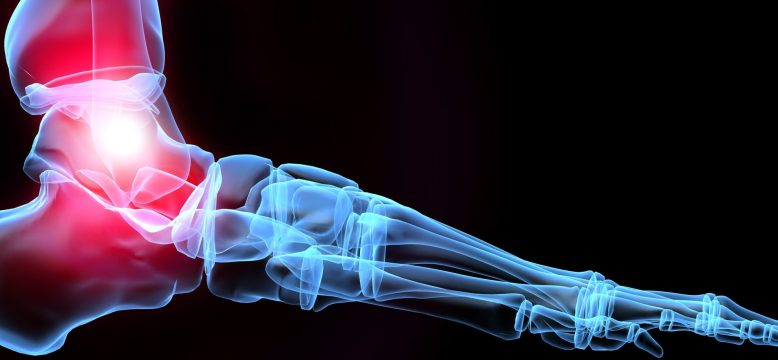Plantar Fasciitis vs Plantar Fasciosis – What’s the difference and how does it impact treatment and recovery from Heel Pain?
Plantar fasciitis is the term used to describe pain, heat and swelling in the heel or arch of the foot and is caused by the inflammation of the plantar fascia. This inflammation can be caused by trauma such as a fall or jumping from a height resulting in a once off tear in the plantar fascia OR it can be the result of repetitive strain and micro-tearing from over use.
Plantar fasciosis is a term used to describe heel pain caused by the degeneration (deterioration) of the plantar fascia and is associated with chronic and repetitive stress being applied to the plantar fascia. Due to the deterioration in strength of the plantar fascia over time, the plantar fascia effectively becomes weaker and more prone to becoming re-inflammed (plantar fasciitis). This sets up a chronic pain cycle that can lead to months and years of debilitating heel pain.
So what is the plantar fascia?
The plantar fascia is the flat fibrous band of tissue (think a cross between a tendon and a ligament) that connects your heel bone (calcaneus) to your toes. It supports the arch of your foot and helps to make the foot more stiff and rigid during walking. This helps make the process of moving forward more efficient.
When the foot structures are not in the right place (mis-alignment), the plantar fascia can become over-stretched & strained resulting in micro-tears and injury. This can be made worse by over training or having tight muscles. It is the strain, damage and injury to the tissue that you feel as pain.
The process of repair…
Once plantar fascia injury occurs our body responds by increasing blood flow to the injured heel area. The arrival of inflammatory cells starts the healing process and this is where plantar fasciitis begins. Our body also starts the tissue repair process and cells begin producing more collagen to repair the ‘gaps’ in the fascial tissue caused by injury. This is where a lot of people get stuck as they are constantly damaging the tissue, repairing the tissue, damaging the tissue, repairing the tissue as they try and live their normal lives walking around. For full repair, remodelling of the collagen needs to occur. This allows the fibres to be re-organised and aligned properly. Once complete this restores the fascia to its full strength allowing it to cope with normal daily physical loads.
So what does this mean for treatment?
In short, when the injury occurs and inflammation and pain begins it is important to seek help early. When the plantar fasciitis is diagnosed correctly and the underlying causes such as training loads, foot alignment and tissue tightness are treated immediately and the process of healing supported this leads to effective and efficient recovery, often in weeks. The challenge is the initial micro tears and damage to the plantar fascia may not cause much pain and unless steps are taken to remove the aggravating factors early the condition can worsen.
Unfortunately, the human way is to think it will get better, it’s only a niggle, I will rest and it will settle. It’s this thinking that leads to the excessive inflammatory phase and interference with the repair phase and ultimately plantar fasciosis.
Management options may include:
- Relative Rest – reduce the amount and intensity of activities
- Ice the heel with an ice pack (gentle massage with a frozen bottle)
- Wear supportive shoes with a cushioned sole
- Gently roll a tennis ball in the arch of your foot before getting out of bed
- Orthotic insoles
- Foot mobilisation therapy and corrective foot exercises
The key to any treatment success is early intervention and finding out the ‘why’ of the problem. This means accurate diagnosis and treating the true cause of the pain. Although symptom management can make you feel better fixing the cause is the key to lasting results. If you are frustrated with your lack progress, would like further information or a second opinion on your individual situation click on this link Freedom From Heel Pain!






No comments yet.